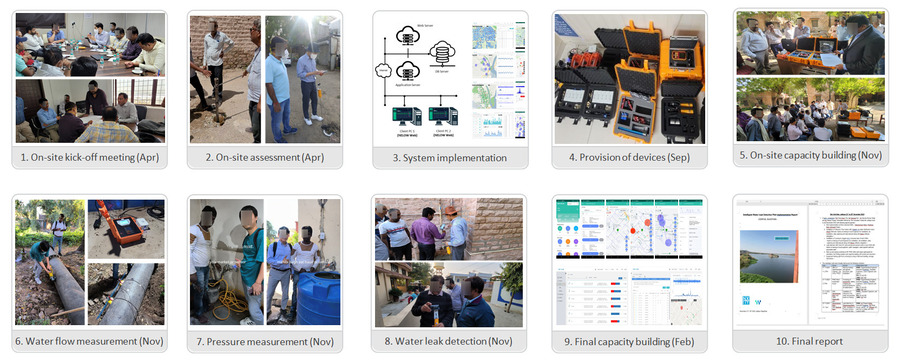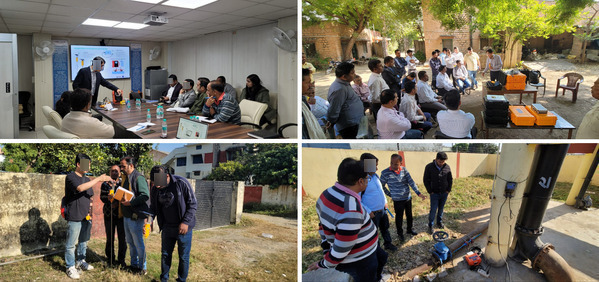Title: Intelligent Water Leak Detection Technology and ICT-based Water Leak Management Systems in Uttarakhand and Rajasthan (ADB Project Link)
Period: 12 months (2022)
Introduction
The Asian Development Bank’s Technical Assistance project introduced an intelligent water leak detection and ICT-based water management system in Uttarakhand and Rajasthan. Running for 12 months in 2022, the initiative targeted Jodhpur and Dehradun, aiming to modernize leak detection through IoT, AI, and cloud technologies.

Project Objectives
The objective of project was to conduct a comprehensive feasibility study on the implementation of an intelligent water loss management system across selected sites in Jodhpur and Dehradun by integrating modern technologies such as IoT, AI, and cloud services, the initiative sought to enhance the capacity of local water management teams through pilot projects. These efforts were aimed at significantly reducing water loss and carbon dioxide emissions, thereby improving the efficiency and sustainability of water resource management in the targeted cities.
Execution Highlights
- Kick-off and on-site assessments commenced in April, laying the groundwork for successful project deployment.
- The project provided advanced devices, including 8 sets of Sonic M1 and 13 i-Loggers, facilitating precise data collection.
- A NELOW server was established, incorporating web and application servers for comprehensive data management and accessibility.
- Over 30 individuals were trained, strengthening local expertise in using the new technology for water management.

Outcome
- Data collection included 275 leak sound data points, alongside water flow and pressure data, enabling the detection of 16 suspicious leak points.
- The project achieved an estimated annual water loss reduction of 43,800 cubic meters and a carbon reduction of 20,940 kg.
- Capacity building was conducted, involving 30 people across three official training programs, enhancing the community’s ability to manage sustainable water resources effectively.


